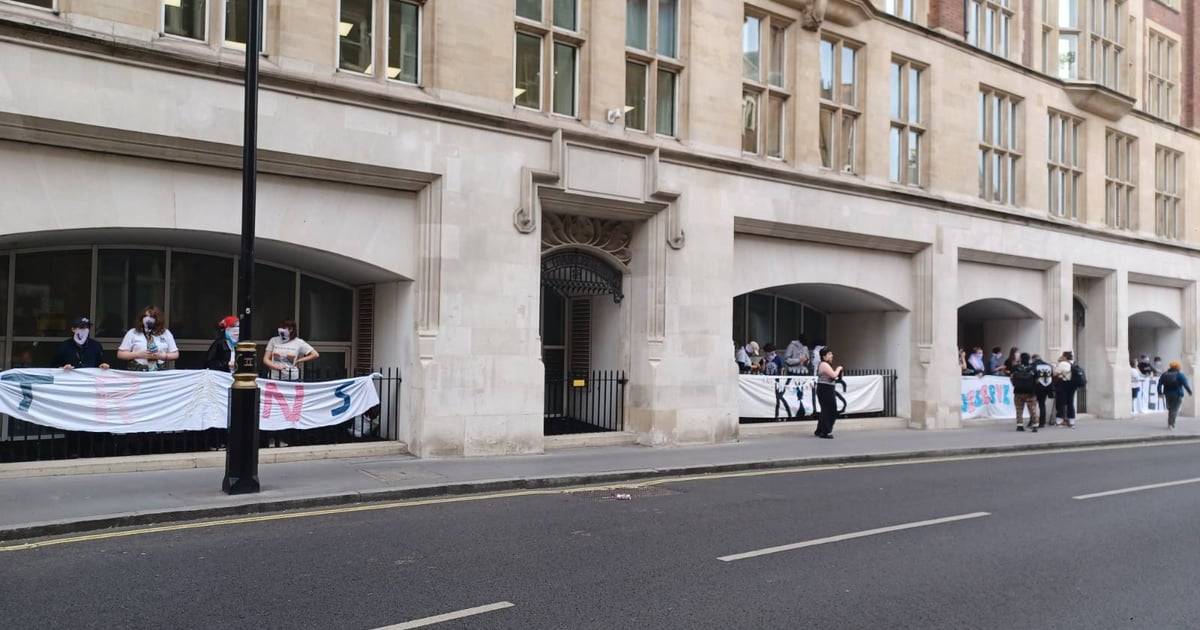Right-to-buy council houses without specifically only releasing housing that already had a replacement built was of the most notable ways of the *many* that Thatcher et al screwed the UK.
I’d love to have a law put in place that landlords either have to sign contracts to provide housing under council house-type contracts with rent controls to people on housing benefit etc, or sell to the local council at compulsory purchase prices.
Same for all the houses not being lived in - use to house people under contractual controls, or have to sell to the council housing central fund.
Personally I’d start converting all the office units that are no longer needed because so many people are working remotely now into housing too.
Same for the huge city centre shops - I’m not sure if the pattern repeats elsewhere, but I live near Glasgow and the city centre has basically died since Covid. No one is renting the huge retail stores and the place is full of unhoused folk, which is a fucking scandal. So convert them into housing; let the buildings see use, and let those folks get off the streets. Pets and kids specifically allowed too - get families out of one-room shelters and into proper homes of their own.
I’ve heard that there would be issues putting in water infrastructure, but given the place is literally crumbling already and usage in so many areas is so low that having workers digging up the streets to install water lines wouldn’t cause enormous disruption, the time to do this is *now*. Build rainwater catchment and purification systems on roofs too - we get so much rain in the UK it’s kind of ridiculous not to use it! Some of that could go directly to drip irrigation in gardens, but plenty could go right into the houses/flats too. And of course this would provide tons of jobs in construction, architecture, planning etc etc.
Install gardens and green spaces around the place while you are doing this - offer some at low rent, or to buy cheaply, to market gardeners, but specifically put spaces in for communal gardens with the idea of offering allotments and encouraging people to grow their own food.
Put solar panels on every roof and integrate spaces for smaller wind turbines amongst the houses too. Huge storage batteries in basements to make the new blocks as low-footprint and self-sufficient as possible power-wise.
It would be a *fantastic* opportunity to create genuinely accessible housing - office buildings and shops already have lifts and wide corridors ideal for wheelchairs and other mobility devices, so keep that in the design when creating housing. There is a hidden epidemic of houselessness amongst disabled people and older folk with mobility needs, so create low-rent council housing that specifically fits those needs there.
It would regenerate the areas - all the smaller shopfronts not suitable for housing conversion would fill up with people offering the things people in residential neighbourhoods need, with a guaranteed payer base. People on low incomes *use* all of their incomes on necessities, so small businesses selling those necessities will do well. Offer small businesses low rents to provide those necessities. Any that don’t fill up, offer to charities and use for council staff offering the aid and advice people transitioning into housing actually *need*.
Carers are generally low-paid - so this would be an opportunity to offer them cheap housing close to a huge client base in the new accessible housing. No need for low-paid, mostly-female workers to dash constantly between clients in cars. They could walk to work and walk in between clients, who would also no longer be trapped in inaccessible homes, so people who are not actually bedbound would hopefully be less housebound.
Put rooms in the blocks for communal and co-op activities to reduce isolation - with the lifts and wide corridors, even people who are functionally housebound are likely to be able to make it to a room in their own building, and even quite young children could get to those places safely on their own if their parents are working. Wraparound childcare, paid and informal, near where folks actually live.
City centre areas that are now largely dead other than unhoused people, with limited and decreasing zero economic activity taking place and a decreasing incentive for businesses to set up there rather than in out-of-town retail parks people need to drive to, would become vibrant communities with every incentive for businesses to set up there, particularly for the small businesses that still employ the majority of people.
It wouldn’t take a lot to extend this model to transform those out-of-town business parks that are currently largely empty either; nothing says the businesses that are still there would need to move, and they would have a huge new pool of potential employees living within easily walkable distance, though there would need to be oversight to make sure places like Amazon didn’t attempt to buy them up and turn them into company housing. There would need to be a little more investment to provide green transport links like electric buses and trains so that it would be easier for small businesses to move in to provide services, but given the tax income that would result and the reduction in pollution the investment would probably pay itself back within a decade or so.












































